Nepenthes rafflesiana - CarniNep38
Nepenthes rafflesiana - CarniNep38
The pitchers of Nepenthes rafflesiana are exceptionally rich in colour. There are several variations but they all have well-developed fringed wings on the sides of the pitcher cups. They may also have a large opening with a striped pitcher rim or peristome. Although Nepenthes rafflesiana thrives on a high level of humidity and hot temperatures it can be cultivated successfully with less humidity and heat.
Currently not in stock
Original price was: € 14,00.€ 11,95Current price is: € 11,95.
Keep me up to date?
Araflora will inform you as soon as the product is available again. Please fill in your e-mail address and we will let you know as soon as the product is back in stock. You will get an e-mail message when the product is available again. Unfortunately we cannot say how long this will be or what the price is likely to be.

Receive an e-mail when new stock of this plant arrives.
Share this plant? Press on one of the following icons.
Nepenthes rafflesiana is a lowland species found throughout south-east Asia. In the wild it can grow to 15 metres but will rarely do so when cultivated indoors. Pitcher colouration varies greatly from dark purple to almost completely white. The typical form of Nepenthes rafflesiana is light green throughout with heavy purple blotches on the lower pitchers and cream-coloured aerial pitchers. When it blooms, Nepenthes rafflesiana produces clusters of yellowish brown flowers that can appear all year round.
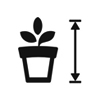
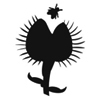
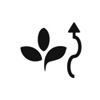
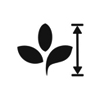
As with other Nepenthes species, Nepenthes rafflesiana requires a great deal of sunlight, but not direct sunlight or it will become dehydrated. The best temperature to cultivate this species is between 20 and 30 degrees Celsius, certainly no lower than 10 degrees Celsius or higher than 35 degrees. It should be watered regularly with rainwater or distilled water, sprayed with water at regular intervals and kept in an environment with a high level of humidity. The best growing medium is neutral to slightly acidic peat. No additional feeding in the form of plant food is required.
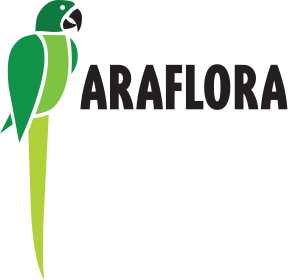


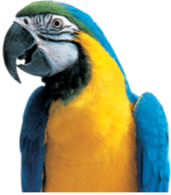
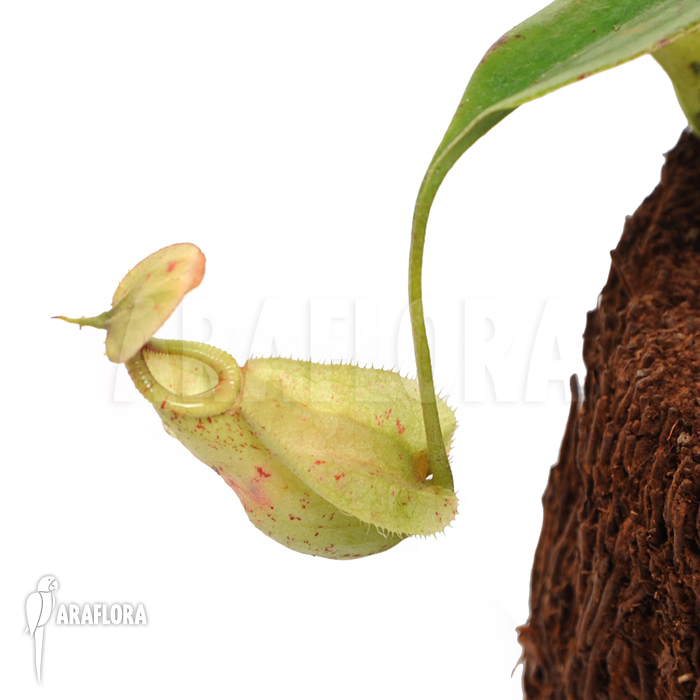
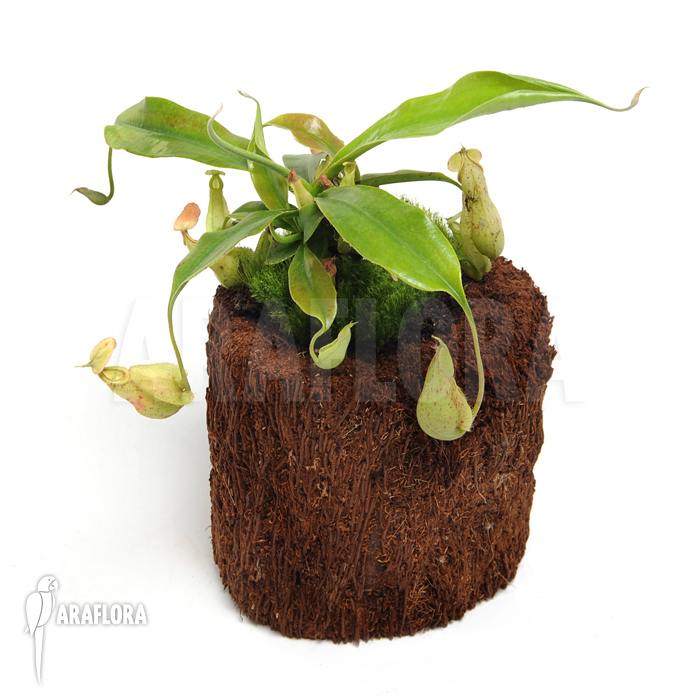
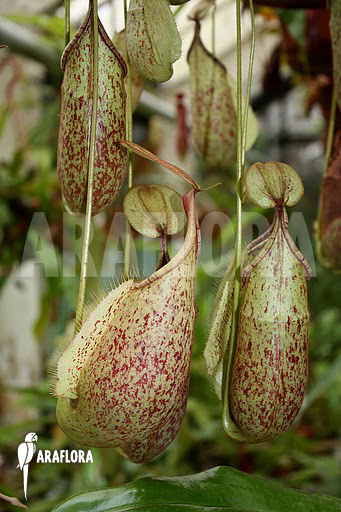
 7 cm
7 cm
 8 cm
8 cm












